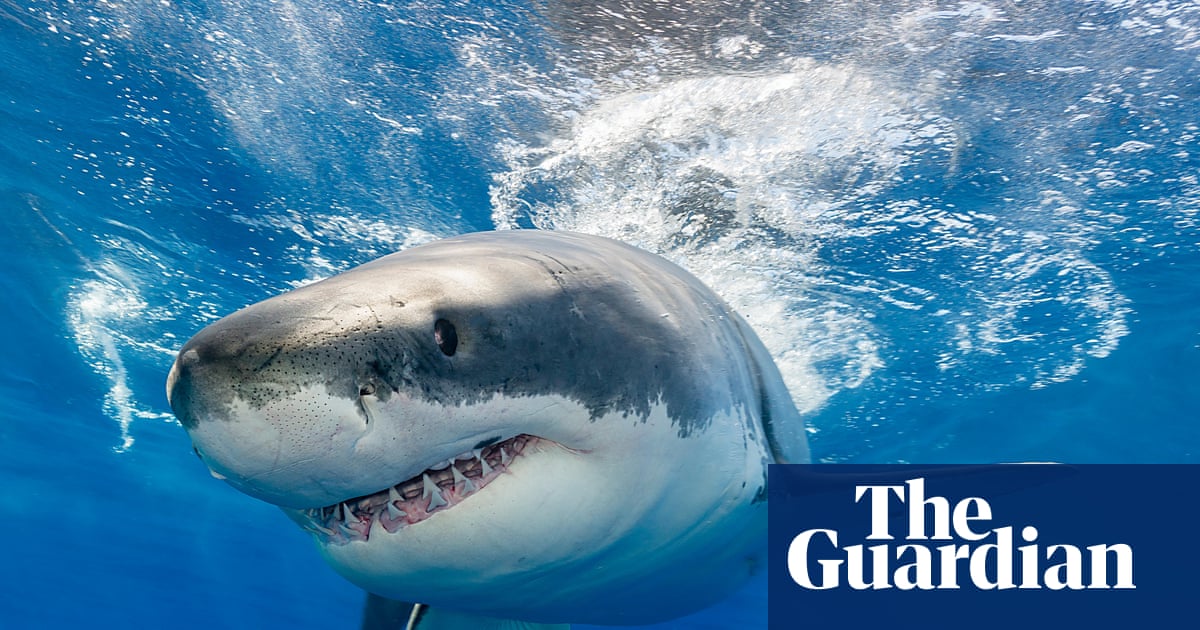
"Sharks without teeth might sound like the stuff of dreams to swimmers and surfers. Now a new study has found that ocean acidification could leave the apex predators without their critical survival weapon. Shark jaws carry several rows of teeth and new ones quickly push forward to replace losses. However, rapidly acidifying oceans are damaging shark teeth and could speed losses past replacement rates."
"Projections suggest oceans could be far more acidic by the year 2300, falling from a current average pH of about 8.1 to 7.3, a change that will have profound implications for marine organisms, the study said. To test acidification effects, researchers kept 60 freshly fallen shark teeth in artificial seawater tanks, one matching the current ocean average pH of 8.1, another with the projected 7.3 pH."
"Maximilian Baum, who conducted the study, with a blacktip reef shark jaw. He found increased root corrosion and altered serration. Photograph: Roman Muller-Bohm After eight weeks, teeth in the more acidic tank suffered about twice as much damage, said Maximilian Baum, the study's lead author and a researcher working with Germany's Heinrich Heine University's Institute for Zoology and Organismic Interactions."
Ocean acidification from rapid CO2 absorption lowers seawater pH and could erode shark teeth, reducing feeding efficiency and threatening population and ecosystem stability. Projections indicate average ocean pH could fall from about 8.1 to 7.3 by 2300, dramatically increasing acidity. Sixty freshly fallen blacktip reef shark teeth were placed in artificial seawater at pH 8.1 and 7.3 for eight weeks. Teeth in the lower pH tank suffered about twice the damage, including increased root corrosion and altered serration. Dental degradation would compound pressures such as prey shortages from overfishing. Reducing human CO2 emissions is vital to limit acidification.
Read at www.theguardian.com
Unable to calculate read time
Collection
[
|
...
]